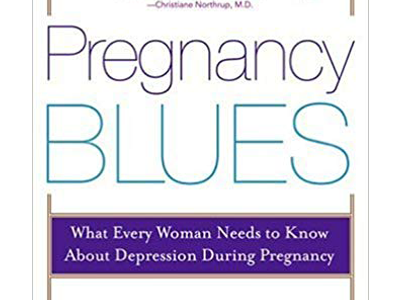If you are looking for natural anxiety remedies, then you have come to the right place. We realise that not everyone wants to pop pills to relieve stress and anxiety, and that is why we have provided this article.
Is all Anxiety bad?
Not all anxiety is bad. It is only natural to face some anxiety before going for a job interview, going on a first date, or writing a test. A healthy level of anxiety protects us from danger. However, constant anxiety can be destructive.
We live in anxious times. Many are still reeling from financial problems, trauma, sickness, and human-made disasters. Isolation from friends and family due to Covid-19 has taken a toll on many people’s mental health.
If you face constant anxiety, you have to act now before it becomes worse and takes control of your life.
In this article, you will learn about several natural anxiety remedies that can help you.
Vitamin Deficiencies that can cause Anxiety & Depression
A deficiency in Vitamin B-1 and B6 can cause anxiety and depression.
Vitamin B-1 is known for its calming effect – that is why it is also known as the “anti-stress” vitamin. This vitamin can be found naturally in whole grains and legumes.
Vitamin B6 helps in producing serotonin and norepinephrine – two hormones that affect how you feel. It can be found naturally in brown rice, whole grains, legumes, chicken, fish, and dairy products.
Natural Anxiety Remedies
The natural solutions proffered here are safe to use with medical therapies. However, changing your diet and taking supplements can interfere with your anti-anxiety medication. Therefore, before trying these natural anxiety remedies, we recommend that you see a doctor.
Exercise
Exercise is an excellent way to keep in shape – in both body and mind. It helps you to burn, not just physical calories, but mental ones as well.
The good thing about staying active through exercise is that it doesn’t help you only temporarily: it keeps you feeling great even hours after working out. Exercising doesn’t mean you have to lift weights or even hit the gym. You can perform relaxation exercises in your apartment.
Exercise three to four times every week, and you’ll likely discover that you do not feel as stressed as you used to.
Meditate
You alone with your thoughts might not feel like a good combination. However, meditation can significantly help to reduce anxiety. A John Hopkins University research claims that meditating for 30 minutes every day can be a natural anxiety remedy.
During meditation, you work actively to eliminate the troubling thoughts from your mind and replace them with peace and calmness. There are several meditation styles, for example, meditation during yoga or during progressive muscle relaxation.
Write
Expressing your anxiety is one way that can help you to manage it. Writing can help you to examine and sift your thoughts. By writing, you can focus your thoughts to empowered and action-oriented thoughts which can help to reduce your anxiety.
Thus, you can have a diary or journal and write in it whenever you feel overwhelmed by anxiety.
Cultivate Time-Management Skills
For many people, their anxiety is time-related. Obligations at work, to the family, and health can cause anxiety. However, by having a plan in place and managing your time and next actions can help keep this anxiety away.
Time management strategies, such as the Pomodoro Technique can help you focus on the task at hand without worrying about other things.
Ditch Alcohol and Smoking
Alcohol naturally relaxes the body and mind. A glass of alcohol can help you relax when nervous – at least at first. However, it is not a solution to your anxiety. Once the buzz is over, however, the anxiety can come back even worse!
Smoking is similar to taking alcohol. Many smokers smoke whenever they feel anxious. However, just like its liquid cousin, smoking is a temporary fix. Some researchers say that early smokers are liable to create anxiety disorders later in life. And the chemicals in cigarettes, especially nicotine, can affect the brain’s pathways that control anxiety.
Sleep Better
Having a good night’s rest can work wonders for your anxiety. Therefore, you should strive to get at least seven hours of uninterrupted sleep every night.
There are tips to help you get much-needed sleep at night. These include:
- Stop using electronic devices like your phone in bed
- Do not watch TV or read in bed
- Don’t eat large meals, smoke, or indulge in caffeine before bedtime
- Keep your room cool and dark
Applying these tips can help you to sleep better at night.
Eat Healthily
A healthy diet is one of the best natural anxiety remedies.
Eating junk foods or foods rich in artificial flavouring, colouring, and preservatives can cause mood swings in some people. You can also suffer mood swings if you have low blood sugar levels or are dehydrated.
A healthy diet contains nutrients that ensure that the right hormones are released by the brain to make you feel good.
Aromatherapy
This is a form of therapy that uses sweet-smelling, soothing plant oils to ease anxiety and stress. These oils can be breathed in directly, added to an air diffuser, or even added to your bath. Some people prefer some smells to others, so you can experiment with different scents until you find that which soothes you. Some of the popular oils include lavender, grapefruit, and sage. You can find other herbs as well as herbal teas discussed in the next point here.
Aromatherapy has been found to:
- Relax the nerves
- Improve sleep
- Improve mood
- Slow down the heart rate
- Lower blood pressure
All of which are important in reducing anxiety.
Drink Herbal Tea
Herbal teas are excellent natural anxiety remedies.
The process of making these teas is soothing for many, but it is most effective when drunk. Some of the teas contain components that help to reduce anxiety. For example, Chamomile tea has been found to change cortisol levels. Cortisol is a stress hormone.
Get a Pet
Pets are wonderful companions that are beneficial to people with mental disorders like anxiety. They offer unconditional love and companionship. By spending time with animals, you might alleviate some stress. Dogs and cats are the obvious options, but other animals can provide support too – without triggering your allergies.
You can find more tips on natural anxiety remedies here.
Final Thoughts
Anxiety is a normal part of life. However, constant anxiety can be crippling. Take control of your life today by trying one or more of the natural anxiety remedies recommended above. You can even consult with your doctor to determine which of the ten natural anxiety remedies above is best for you.





